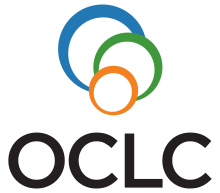Online Computer Library Center
 |
|
| Nonprofit cooperative | |
| Industry | Information |
| Founded | July 5, 1967 (as Ohio College Library Center) |
| Headquarters | Dublin, Ohio, U.S. |
|
Area served
|
Worldwide |
|
Key people
|
Skip Prichard President, CEO |
| Products |
|
| Members | 72K libraries, archives and museums in 170 countries |
| Website | Official website |
The Online Computer Library Center (OCLC) is a nonprofit cooperative organization "dedicated to the public purposes of furthering access to the world's information and reducing information costs". It was founded in 1967 as the Ohio College Library Center. OCLC and its member libraries cooperatively produce and maintain WorldCat, the largest online public access catalog (OPAC) in the world.
OCLC began in 1967, as the Ohio College Library Center, through a collaboration of Ohio university presidents, vice presidents, and library directors who wanted to create a cooperative, computerized network for Ohio libraries. The group first met on July 5, 1967 on the campus of the Ohio State University to sign the articles of incorporation for the nonprofit organization. The group hired Frederick G. Kilgour, a former Yale University medical school librarian, to design the shared cataloging system. Kilgour wished to merge the latest information storage and retrieval system of the time, the computer, with the oldest, the library. The plan was to merge the catalogs of Ohio libraries electronically through a computer network and database in order to streamline operations, control costs, and increase efficiency in library management. The goal of this network and database was to bring libraries together to cooperatively keep track of the world's information in order to best serve researchers and scholars. The first library to do online cataloging through OCLC was the Alden Library at Ohio University on August 26, 1971. This was the first occurrence of online cataloging by any library worldwide.
Membership in OCLC is based on use of services and contribution of data. Between 1967 and 1977, OCLC membership was limited to institutions in Ohio, but in 1978, a new governance structure was established that allowed institutions from other states to join. In 2002, the governance structure was again modified to accommodate participation from outside the United States.
As OCLC expanded services in the United States outside of Ohio, it relied on establishing strategic partnerships with "networks," organizations that provided training, support and marketing services. By 2008, there were 15 independent United States regional service providers. OCLC networks played a key role in OCLC governance, with networks electing delegates to serve on OCLC Members Council. During 2008, OCLC commissioned two studies to look at distribution channels; at the same time, the OCLC Members Council approved governance changes that had been recommended by the Board of Trustees which severed the tie between the networks and governance. In early 2009, OCLC negotiated new contracts with the former networks and opened a centralized support center.
...
Wikipedia
